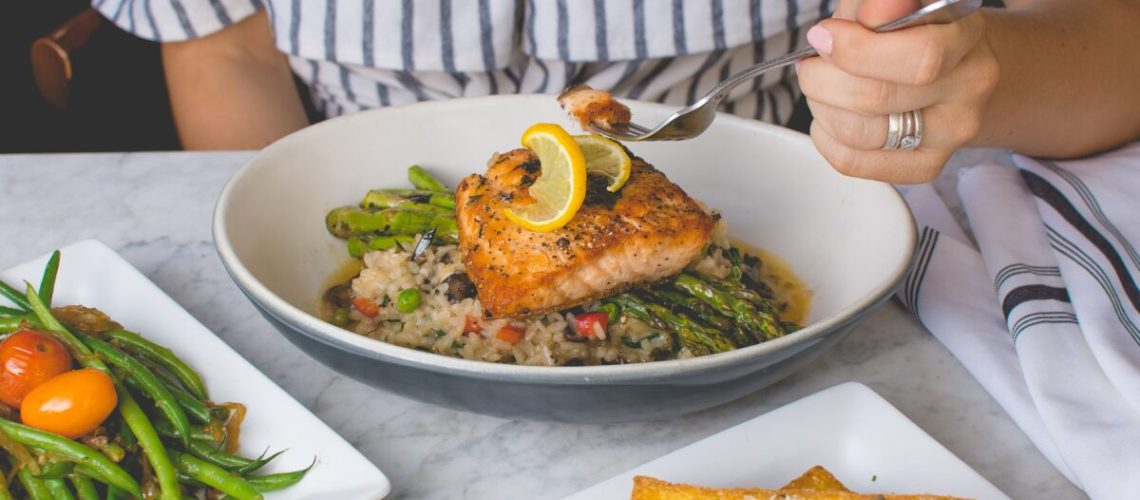Caring for someone with Parkinson’s disease can be trying and requires patience. One of the side effects of Parkinson’s disease is loss of control of the mouth and throat muscles. Therefore, chewing and swallowing solid foods can be hard to manage. As a caregiver, it is necessary to know the side effects of Parkinson’s and how to help your patient manage them as much as possible.
Possible Issues
Dry Mouth – Many of the medications given to patients with Parkinson’s cause dry mouth, also known as xerostomia. Saliva keeps the mouth wet and keeps it clean when swallowing. The lack of saliva makes chewing more difficult and creates a choking risk. It also increases the risk of infection in the mouth.
Aspiration – This occurs when food or liquids go down the “wrong pipe.” It then goes into the lungs instead of the esophagus as intended. Heavy coughing, trouble breathing, pain, and even choking are all issues that occur with aspiration. While aspiration is more common in the later stages of Parkinson’s, it is possible at any time and caution should be used.
Drooling – Parkinson’s affects the muscles used for swallowing and can make it more difficult. Swallowing less often means that saliva can build up and create drooling. Sometimes when someone is distracted, they may not be as mindful and remember to swallow, leading to more issues with drooling. Some medicines and therapies can help with this issue. You can talk to a doctor to learn more.
Solutions
Have a drink with food – Having a drink with meals will soften the food, making it easier to chew and digest. Therefore, you should make sure that the patient has a beverage or consider using sauces, like gravy, to moisten food while eating.
Eliminate distractions – Create an atmosphere for your client to eat without distraction. An excellent way to do this is to turn off the television and only engage in small talk. When there is a decrease in motor function, which is very common with Parkinson’s patients, biting, chewing, and swallowing require more attention.
Eat at the table – This creates a solution to several problems. First, it gets the patient up and moving, even if only for a short trip to the table. Second, it gets them sitting in an upright position, which straightens the pathway to the stomach and makes swallowing and digesting easier. Eating at the table also allows more concentration on the task at hand, eating. It will make it easier to cut smaller bite-sized pieces and will create a mindful atmosphere for better eating habits.
Change the food – If chewing has become too much, consider changing to softer foods. For example, red meats can be more challenging to chew and digest than say, chicken or ground beef.
As a caregiver, you will be able to suggest small adjustments to help make mealtime a bit more comfortable. Keep an eye out for problems and if necessary, change the current routine to keep issues at a minimum. If you need further assistance or information on mealtime issues and Parkinson’s disease, please contact Shepherd’s Staff, and we can offer some help.


